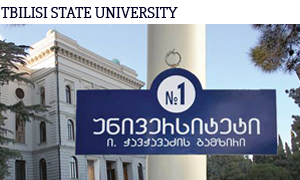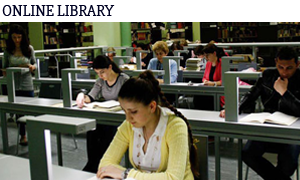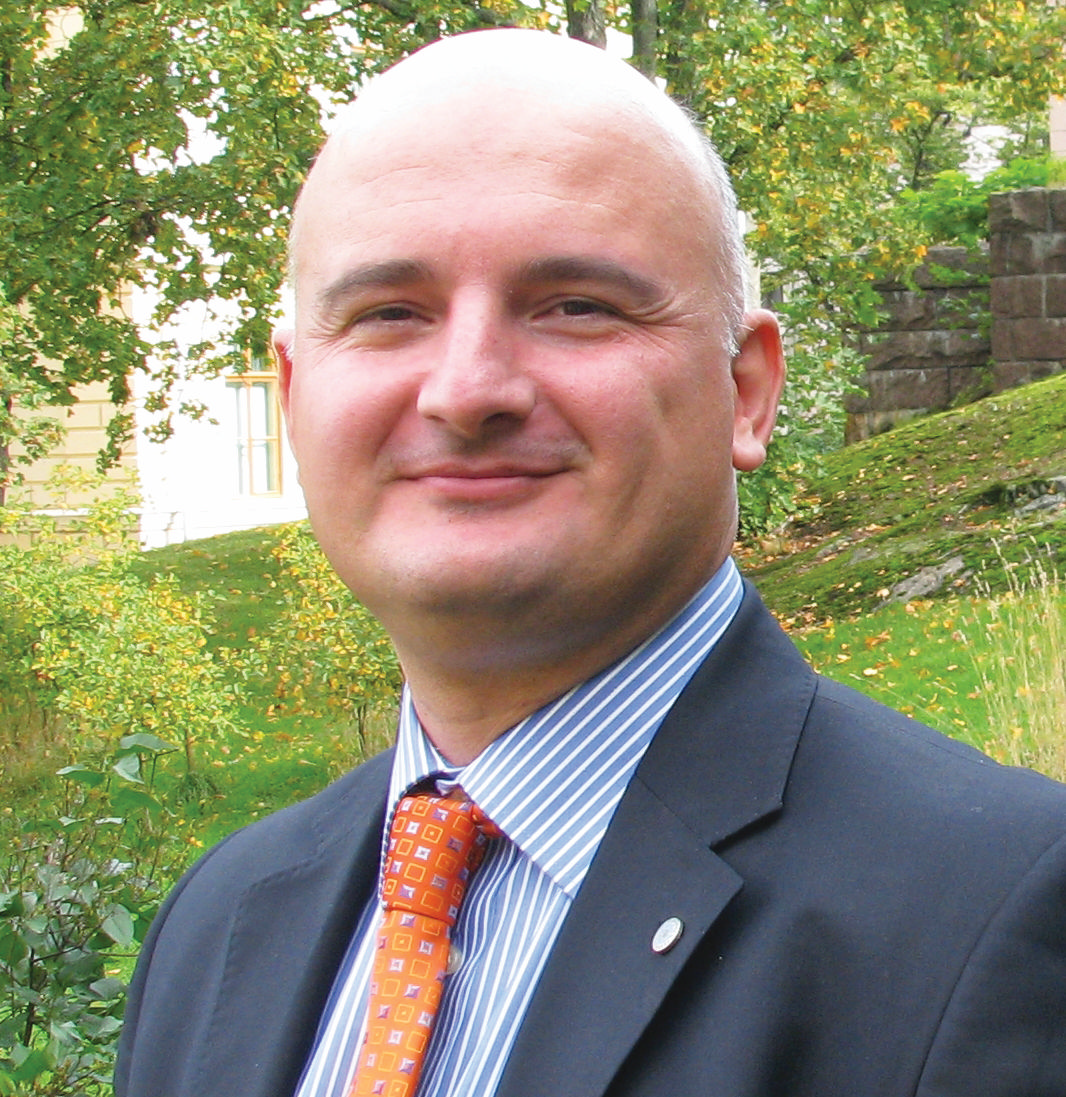
FACULTY OF SOCIAL AND POLITICAL SCIENCES
THE ROLE OF SOCIAL NETWORKS IN GEORGIAN PARTY POLITICS
What is the role Facebook and other social networks play in Georgian political parties? How do political parties’ online activities determine their success? Which social networks are most popular with political parties?
Unlike the world’s leading countries, these issues started to arise in Georgia only a few years ago. Research on “The Role of Social Networks in Georgian Party Politics” is a social scientific study on the use of social networks in Georgian political processes, conducted in 2011-2013 and financed by the Academic Swiss Caucasus Net (ASCN) with Ivane Javakhishvili Tbilisi State University and Ilia State University as implementing partners. ASCN is a five-year program to develop humanitarian and social sciences in the South Caucasus.
 The Project Manager, Korneli Kakachia, stated that for years Georgia’s party politics was characterized by the dominance of one political party, where individual citizens, opposition parties and civil society were isolated and had few opportunities to get involved in the country’s political life. The present research created a hypothesis to assess whether Internet communication technologies enabled political parties to create a comprehensive platform and present themselves more effectively during the 2012 Parliamentary elections. The influence of modern communication technologies and social media on Georgian party politics was studied and the environment was assessed to see how it enabled political parties to ensure more public involvement in political processes, or not.
The Project Manager, Korneli Kakachia, stated that for years Georgia’s party politics was characterized by the dominance of one political party, where individual citizens, opposition parties and civil society were isolated and had few opportunities to get involved in the country’s political life. The present research created a hypothesis to assess whether Internet communication technologies enabled political parties to create a comprehensive platform and present themselves more effectively during the 2012 Parliamentary elections. The influence of modern communication technologies and social media on Georgian party politics was studied and the environment was assessed to see how it enabled political parties to ensure more public involvement in political processes, or not.
This research demonstrates that the intensive use of social networks and modern communication technologies may have a decisive effect on the success of a political party in the electoral process. Research results describe the interdependence between technology and politics in the modern Georgian state, as well as current practices in the use of social networks by political parties and the impact of these practices on election campaigns and outcomes.
The study examined activities of the 11 main Georgian political parties and their policies before the 2012 parliamentary elections and during the election campaign. It showed that despite the entry of Internet technologies into Georgia’s political life, their use did not sway electoral processes decisively. Political parties continue to debate the issue of their impact.
Of all social networks, Georgian political parties prefer to use Facebook. However, monitoring results confirmed that political parties fail to make full use of the potential of social media. They don’t use all social networking applications. The main parties, such as Georgian Dream and the United National Movement, use social media more intensively than other parties do, but overall the Georgian political elite is skeptical towards the importance of social media and online networking and towards their potential for gaining voters’ support. Some parties believe that television and direct contact at voter meetings are the most effective way to win elections, and that social networks are nothing but a senseless waste of resources and do not help attract voters.
Georgian political parties use social networks to disseminate information but not to dialogue or discuss issues with potential voters. Results showed that intensive involvement in social media platforms and social networks were not an important factor in the results of elections, even though the winning parties had carried out active campaigns via Facebook.
 The study concluded that an analysis of the issue of the prison scandal before the October 2012 parliamentary elections showed how social media and social networks can influence the establishment of public opinion in the pre-election period. The release of incriminating videos showing inmates’ torture on national television on September 18, 2012 was an effective attack against the ruling party. However, contrary to all expectations, this party—which had been very active in social media--and ruling officials were absolutely unprepared for this eventuality. Thus, the key target of the scandal, the ruling party, completely disappeared from Facebook between September 19 and September 26 and made no use of social networks to maintain contact with their support base. Although social networks did not play a decisive role in initializing the scandal they did influence the outcomes, for example serving as a venue for debates on prisoners’ rights, which was actively discussed in both traditional media and social networks. This proved decisive for election results.
The study concluded that an analysis of the issue of the prison scandal before the October 2012 parliamentary elections showed how social media and social networks can influence the establishment of public opinion in the pre-election period. The release of incriminating videos showing inmates’ torture on national television on September 18, 2012 was an effective attack against the ruling party. However, contrary to all expectations, this party—which had been very active in social media--and ruling officials were absolutely unprepared for this eventuality. Thus, the key target of the scandal, the ruling party, completely disappeared from Facebook between September 19 and September 26 and made no use of social networks to maintain contact with their support base. Although social networks did not play a decisive role in initializing the scandal they did influence the outcomes, for example serving as a venue for debates on prisoners’ rights, which was actively discussed in both traditional media and social networks. This proved decisive for election results.
Research results, and publications prepared on the basis of these results, were submitted to key politicians who will likely find this material important for the activities of their political organizations, especially in terms of planning their pre-election strategies. Georgia-based international organizations such as the National Democratic Institute; the International Republican Institute; the Netherlands Institute for Multiparty Democracy; the Friedrich Ebert and Konrad Adenauer Foundations were also informed about these results and will continue to assist Georgian political parties in developing technologies for social and political use.
The academic discourse on social media was largely influenced by the researchers’ opinions, often based on the experience of European countries and the United States. They recognize that the level of technology in Georgia is far behind western democratic countries. However, due to the exponential growth of Internet and social media in Georgia, similar trends may correlate with political processes here in the future.
The following persons took part in the study: Korneli Kakachia, Project Manager, Professor at the Political Science Direction at the Faculty of Social and Political Sciences of TSU; Tamar Pataraia – PhD student at Ilia State University; and young Georgian researchers – Nino Gambashidze, Tamar Iakobidze and Nino Khelaia. Research results were presented at the following conferences: 2nd Annual ASCN Conference “Political Transformation and Social Change in the South Caucasus”. Panel: Civil Society, Social Capital and Social Networks; Yerevan, Armenia, 29- 30 June 2012; Social Media and Democratization in Post-Soviet Nations Workshop; Panel 4: Pluralism and Dissent in Old and New Media, George Washington University, USA, September 25, 2013.
A publication including the study was published in the Journal of Post-Soviet Democratization, Vol. 22, No. 2, Spring 2014. K. Kakachia, T. Pataraia, M. Cecire, “Networked Apathy: Georgian Party Politics and the Role of Social Media”. It was also published as a bilingual (English-Georgian) book: K. Kakachia, T. Pataraia: The Role of Social Networks in Georgian Party Politics, 2013, Tbilisi.
Feedback for the study was provided by researchers from Switzerland at the Universities of St. Gall and of Lausanne, who are working on similar issues. Some of them expressed interest in the Georgian study as prompted by their own research.
■ Georgian political parties use social networks to disseminate information but not to dialogue or discuss issues with potential voters. Results showed that intensive involvement in social media platforms and social networks were not an important factor in the results of elections, even though the winning parties had carried out active campaigns via Facebook.




